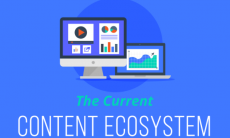Every CEO today is feeling the growing pressure to take a position on some social or cultural issue that has become mainstream in our digital, partisan world. It is a quandary for many companies. Why stick your neck out by initiating a point of view if no one has protested yet or your brand has not appeared in the news? Yes, every brand situation is different and there is never a clear path to take, but here are some pros/cons on relevant options to consider:
Biggest “hot button” issues today – A 2018 study by Cone/Porter Novelli found that 71% of Americans expect companies to connect with them emotionally on issues that matter to them personally. They felt most passionate about these social justice issues:
- Privacy and Internet Security (86%) – think of Facebook…
- Domestic job growth (86% – vs. offshore?
- Access to healthcare (85%) – and how premiums keep rising
- Sexual Harassment (83%)
- Racial equality (81%)
- Women’s rights (80%)
- Cost of higher education (76%)
- Immigration (74%)
- Climate change (73%)
- Gun control (69%)
- LGBTQ rights (63%)
Stay quiet or be proactive?
It is not surprising for companies in controversial product areas like gun control to want to remain beneath the digital dialogue surface, but these brands are likely to be attacked by activists at some time, forcing pressure to take a stand. At a minimum, they must be prepared for such activist incidents, at least with a convincing response, and ideally a reserve of proactive initiatives that show they sincerely care about society and these hot button issues. The 2018 Edelman study revealed that 56% of respondents said they had no respect for CEOs who remained silent on such important issues.
Downside versus upside of being proactive
Any action will always alienate some customers, but more often a net gain can be realized if a position on a key issue is consistent with its brand values/image and is aligned with an overall trend that embraces its customers. Two insightful case studies show how a company can achieve this net gain, even in highly politicized categories like gun control:
- Dick’s Sporting Goods, when learned that the Parkland shooter used a gun bought at one of their stores, permanently banned assault-style weapons and then enacted an additional policy to enforce an age requirement of 21 for purchasing firearms. Immediately the number of Twitter messages referring to Dick’s jumped 12,000% from its average, with 79% being positive.
- Delta Airlines severed its ties with the NRA after the Parkland incident, and despite Georgia’s legislature taking retribution by eliminating tax breaks worth $50 million, its adjusted operating revenue in the following quarter improved by 8% marking a record for the company, and its e-commerce sales jumped 24%.
Take a political stand, or just focus on social issues
Most of the issues being pursued by activists tend to be socio-economic, although many can provoke a polarizing opinion by politicians. A big study by Morning Consult, a technology company focusing on survey research data, in July 2018 found that speaking about Trump, either positively or negatively, is far more likely to generate a strong backlash that may not compensate for any favors for a brand. Not surprisingly, this study showed that by far the most polarizing brand in America was Trump Hotels (spread between net favorability was 78), followed by CNN (spread of 66) and Fox News (spread of 54). In short, there is a clear risk for brands getting too involved in politics.
How to convincingly communicate your position
Assuming a credible alignment with a brand stand and its values, the best way to win over all stakeholders, including activists, is for the CEO to lead the charge for updated positions and new initiative. The recent American Banker/Reputation Institute survey concluded that the more visible a CEO is, the greater the trust by customers and the more positive impact its company brand can offer for society. (There is also a risk to the brand if a CEO gets into trouble – e.g. sexual harassment.) This also opens the door for storytelling, the most effective way to create a deeper emotional connection with customers, as it engages and inspires in a more memorable and credible way.
Use emotion to address passionate issues
There is a noteworthy level of cynicism in our society, especially among activists who believe proactive initiatives like sharing company profits is designed primarily to get positive publicity (e.g. 29% of all adults feel this way, versus only 9% who believe it is primarily to do good, from the Morning Consult survey). Any new program must not only reflect its brand values and personality, but also be distinctive and show that it is from the heart – an authentic, emotion driven program from a purposeful brand and not just a rationalized response to pressure from activists. Even Wall Street has recognized the power of such emotions; a “feel-good” index with metrics developed
by Just Capital to measure the practices of corporate America for social impact has recently convinced Goldman Sachs to build a new exchange-traded fund for this.
There is no easy answer for preparing for this turbulent world today, but ignoring the risks or threats to a brand reputation would be the worst road to take.







